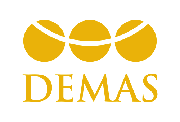CEELI Institute’s Summer Law School for Ukrainian Students
Since the Russian aggression in Ukraine began, CEELI Institute staff have worked hard to welcome and accommodate refugees displaced by the war—with the very generous support of so many of you. This effort relied on the villa’s available rooms and our staff members’ language skills and willingness to work long hours to help people in dire need, but not on the core expertise of the CEELI Institute. We decided to put that to use too, in order to aid Ukrainian law students whose studies had been interrupted by the war—and who will be at the forefront of protecting the rule of law for years after the war ends. As discussions about Ukraine quickly started including the term “genocide,” we saw the need to help these students to better understand the possibilities and difficulties that international criminal law offers for those seeking justice, and to improve their skills for holding those responsible to account. The villa is usually fairly empty in July, as many potential participants enjoy vacation, and we have both in-house expertise and connections to extraordinary experts on these and related topics. Thanks to the generosity of donors, led by Devon Energy, of faculty members who donated their time, and of CEELI Institute staff members who worked on weekends and public holidays, we welcomed 32 Ukrainian law students and junior lawyers to the Villa Grébovka in Prague for a two-week summer school on “Legal Skills in a Time of War.
The African Judicial Network Meets in Nairobi for a Fourth Roundtable
On 18-19 July 2022, in Nairobi, Kenya, the CEELI Institute organized the fourth roundtable session for member judges of the African Judicial Network (AJN). The Network, which was set up in late 2021, aims to provide a platform for judges from anglophone African common-law countries to share knowledge and experiences on challenges in their daily work. The roundtable brought together thirty-two judges from Botswana, The Gambia, Ghana, Kenya, Nigeria, Tanzania, Uganda, and Zambia, who, over the course of two days, discussed good practices on issues of judicial independence, combatting corruption, and performance evaluation and management. The roundtable session included a number of presentations by faculty from the Czech Republic, The Gambia, Kenya, Poland, and the United States, as well as rich discussions among participants. This meeting also supported the further development and expansion of the AJN by adding new members and enhanced the cooperation and exchange of experience between judiciaries of the participating countries.
CEELI Supporting Anticorruption Reforms in The Gambia and Malaysia
The CEELI Institute team went to The Gambia and Malaysia this summer in support of our global “Implementation of Anti-Corruption Treaties and Standards” (IMPACTS) project. This project is carried out with our longstanding partner, the International Foundation for Electoral Systems (IFES).
In July, the team, joined by colleagues from the US Federal Judicial Center (FJC) and US District Court of Alaska, traveled to the Gambian capital of Banjul for a series of meetings and exchanges led by our in-country partner, Gambia Participates. The Gambia Participates team has been helping provide support for a nascent Gambian national judicial academy, which is one of the priorities of the IMPACTS program. Key in that effort is the design and implementation of The Gambia’s first judicial ethics curriculum for judges—an essential training course for any new judge. With support from adult- and judicial-education experts from the FJC, a two-day workshop was held for a small working group of judges who had been selected to develop this initial curriculum. Over the next several months, assisted by Gambia Participates and the international IMPACTS team, the judicial working group will design and implement the country’s first standardized training on judicial ethics.
Launch of the INNOCENT Project
We are delighted to kick off our INNOCENT project, a two-year program funded by the European Commission. The project launched in June 2022 and on September 13, 2022, we met in Brussels with our project and policy officers. The INNOCENT project focuses on the procedural rights of persons suspected or accused of a crime, in particular their right to be presumed innocent until proven guilty and how this should be construed in the context of electronic evidence. The CEELI Institute will work with five partners from Bulgaria, Croatia, Poland, Slovakia, and Slovenia to implement the project in Central and Eastern Europe. Our first step? Mapping the similarities and the best and worst practices in the region regarding the practical application of the presumption of innocence and the use of electronic evidence. Our ultimate goal is to design guidelines and policy recommendations in the context of the presumption of innocence and e-evidence.
If you are a judge, a prosecutor, or a lawyer, this project is an opportunity to enhance your knowledge and skills about rights and obligations regarding the presumption of innocence and the use of electronic evidence. Contact us to learn more about the project and to engage in the planned activities!
The CEELI Institute is proud to launch a revised edition of its Judicial Manual for Independence, Impartiality, and Integrity of Justice, including a thoroughly updated addendum. Drafting and updating the Manual has been one of the principal projects undertaken by the Central and Eastern European Judicial Exchange Network, which the CEELI Institute launched in October 2012. Network members are talented, motivated, early- to mid-career judges from 18 countries in the region who recognize common challenges to judiciaries and individual judges and share best practices on a wide range of issues affecting judicial independence, integrity, and accountability.
In August 2022, we released an updated version of the Manual and its addendum, which reflects recent changes and new international standards, as well as policies and best practices that affect today’s judiciary. The addendum is a compilation of decisions from individual member states affecting judges in certain thematic areas such as ethics, freedom of association, and freedom of expression. We hope that the updated Manual will facilitate the day-to-day work of judges from Central and Eastern Europe jurisdictions.

